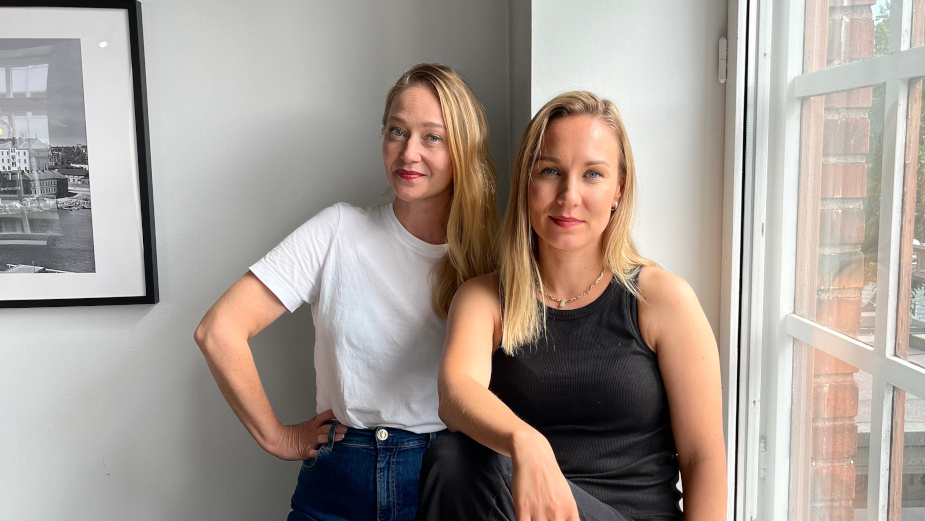
How SEK Is Changing Adland’s Approach to Gender Equality

Gender inequality is an issue at every level, in every field in the world - and adland has been speaking openly about it for some time now. If you visit any advertising event, you will most probably find yourself at a talk or a panel that discusses issues of this nature - be it the gender pay gap in advertising, women leaving the industry because of unfair treatment, the lack of women in the C-suite, or the state of maternity leave.
The world is not far behind with the recent developments in the States. After the overruling of Roe v. Wade, the advertising industry quickly caught up on the need to speak out on the issue, but once again audiences and critics were faced with asking themselves if this will just be the next bandwagon. In most interviews with advertising folk, gender inequality gets acknowledged, but there is always a thin veil of disbelief in the lengths that advertising has truly gone to when it comes to actually trying to support women and creating a truly equal space. From advertising itself harming women through packaging their own problems and selling it back to them, to posing women and minority groups with a number of obstacles that prevent them from reaching leadership positions, the problem is very much prevalent.
Finnish creative agency SEK is passionate about equality in all its forms and is a leading figure for improving gender inequality on a systematic level, both in Finland and beyond. While pushing forward, the agency also understands that the campaign for equal opportunity has no ‘one-fits-all’ approach and is based on a “multifaceted societal, cultural and historical weave” - according to SEK’s Sonja and Mira. A few years ago, the company even set the foundations to what is now the ‘Mad Women’ concept, which went from a networking event to a working tool for all Finnish agencies to look up to, in order to tackle inequalities.
LBB’s Zoe Antonov spoke to SEK’s business directors and members of the executive board, Sonja Pihkala and Mira Vierto, about how the agency is changing the status quo, what the Mad Women concept has become today, and the duality of gender equality in Finland.
LBB> Tell me more about the diversity and equality mission at SEK and how it started.
Sonja & Mira> Traditionally there have been relatively few female creatives working in leading positions in the creative field of Finland. Most of them were stuck on the operational level. The opportunities to drive change on a systematic level were very limited. Women lacked access to the important networks that were run by men. We wanted to change this by starting from our own agency and its leadership group. In our agency there were women, us included, who had the potential and will to take leading roles and drive equality. It was equally important that there was a general consensus and support for change within the agency. Equality became a key cornerstone of the agency’s new strategy that was based on a human approach. We have recognised equality as a key to success in the long run.
LBB> What processes are in place at SEK to ensure the equal rise of women to leadership positions as men? How do you go through with these?
Sonja & Mira> These are not simple issues, so there are no simple answers either. Equality on a broader level, not only gender equality, is something that needs more than a process. Its progress and level is based on a multifaceted societal, cultural and even historical weave that one single process cannot solve. It has to do with the culture and values shared in the company and the executive board need to share a common goal to reach equality and work towards it.
Generally we want to emphasise the ‘solution-focused coaching’ view. It is a powerful tool that is a future-oriented, goal-directed approach to solving human problems of living. The focus is on respectful interaction that focuses more on a person’s strengths, skills, interests and resources and builds upon these in building a way to future goals. As a tool we use an appraisal model built on this methodology. Everyone has a developmental path written down based on their strengths etc. (see above) in the company’s context. The company and supervisors take an active role in supporting and coaching the employee along the path to build a way to their goals. We have also given the supervisors basic training in solution-focused thinking as a tool in supervisory work.
Additionally, once a year we analyse the situation of equality in our agency, based on; gender balance of employees in different positions, wage equality, and gender balance of our executive board.
LBB> Tell me more about the ‘Mad Women’ concept - When did it start? How did it develop and what shape has it taken now?
Sonja & Mira> The initial idea behind the ‘Mad Women’ concept was to start building a network that we creative women lacked. We were a group of women working at SEK that wanted to network with other people in our industry during International Women’s Day. Every year, we had an open mic night where everyone was invited to join and share their thoughts and experiences regarding diversity and equality in our industry. Every year we had a different topic (gender wage gap, women’s networks etc.) and we invited a few interesting guest speakers to promote the event.
We wanted to create a space where anyone (competitors, freelancers, clients etc.) in our industry can come to discuss, ask and listen to advice and experiences from others about how they have experienced their careers as women. Later, in 2018, we created a ‘Mad Women’ concept to promote the yearly event but it evolved quite fast.
LBB> This year, SEK also challenged other marketing agencies to join you in providing 100 hours of creative work for female entrepreneurs. How did that go and do you believe more companies will jump on the opportunity?
Sonja & Mira> After creating the ‘Mad Women’ concept, we wanted it to be more than a networking event. We wanted it to be based more on action and started to think about what we can give and offer as creative women that could foster equality and diversity issues in our industry and in our society. As mentioned earlier, every year we have had different issues to address. The act of donating 100 hours of work for female entrepreneurs was only one act under the ‘Mad Women’ concept, not the concept itself.
Last year was a special year because of covid-19. We decided to act for the female entrepreneurs that had been affected by the pandemic. According to a report conducted in 2021 by Unconventional Venture, it has been estimated that only 1% of all funding goes to companies founded by women. And the pandemic only made the situation worse. That is why we decided to donate 100 hours of our work to female entrepreneurs, and we launched a campaign together with an association called The Women Entrepreneurs of Finland. We received approximately 200 applications in total through our campaign website, from which we selected the three that we could provide the most value for. The selected entrepreneurs had the freedom to determine what kind of work we did for them.
In the future, the ‘Mad Women’ movement will focus more on diversity issues within our industry, not just women’s rights.
LBB> Looking at the state of the Finnish creative industry from a feminist perspective, where do you believe it falls in terms of progression, on a European level and in the world. What do you want to see done in the coming year(s) to make the movement accelerate?
Sonja & Mira> In Finland, we have a female-led government and we have the world's youngest serving prime minister - who’s also a woman. Women have historically played a major role also in our business life. Finland was the first European country to give women voting rights back in 1906, and the small size of the population has added impetus to encouraging women into the workforce.
At the same time, women hold around 19% of top management positions and only 10% of the board seats in Finnish private equity and venture capital investors' portfolio companies. And this number is decreasing. Not to talk about diversity as a whole - there is so much to do on that front in Finland. In the business world, it’s really about getting women to the boards of companies on all levels. Regulation is a hot topic and no one wants to be a quota member - but that might still be the fastest route to challenge the status quo, which is based in the heritage of times when possibilities and societal norms were very different for women.
In short, we need to see more diversity in boards on all levels and make it happen fast.
Several studies have established that there is a correlation between diversity and companies’ financial performance. In 2018, McKinsey’s report stated: ‘Diverse companies are 33% more likely to have greater financial returns than their less-diverse industry peers.
And in another study, BCG reported that companies with above-average diversity at the management level generate 19% higher innovation revenues than companies with below-average diversity. (https://corpgov.law.harvard.edu/2020/10/11/board-diversity-no-longer-optional/)
LBB> Do you believe enough honest conversations are taking place within creative industries when it comes to women's rights - and how do you think this can improve?
Sonja & Mira> We believe in policies that ensure honest interaction. If the general culture in a company does not allow this - or an organisation, or its board lacks representation (of minorities of any kind) and lacks the will to work for equality - we say, ‘start from the board and make sure there are people willing to work for the issue.’
LBB> How does one challenge fraudulent claims to diversity - both in the C-suite and within the work of an agency or production companies. Lately, in and outside the creative world people have been making claims of both gender equality and inclusion, but have not delivered.
Sonja & Mira> The statistics speak for themselves. The truth will always come out in the end. Sustainability and social responsibility will be a must in the world in the immediate future. To be able to tackle the problems of the world and succeed financially, every company will have to start working to make it happen and also be willing to analyse their own culture.
LBB> Any final thoughts?
Sonja & Mira> As a creative industry, we sell ideas of the future. If we live in the past world ourselves, how are we able to succeed?















